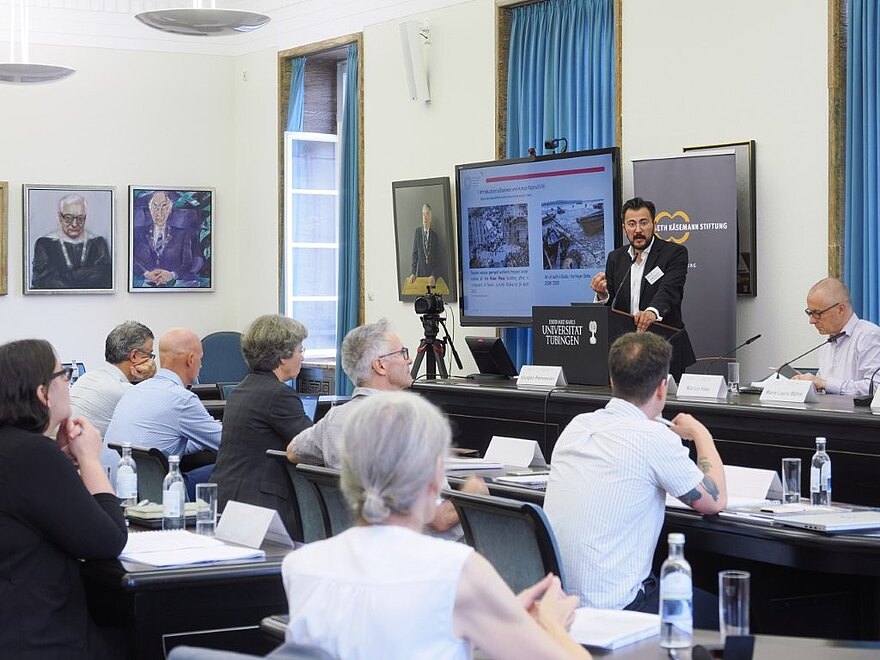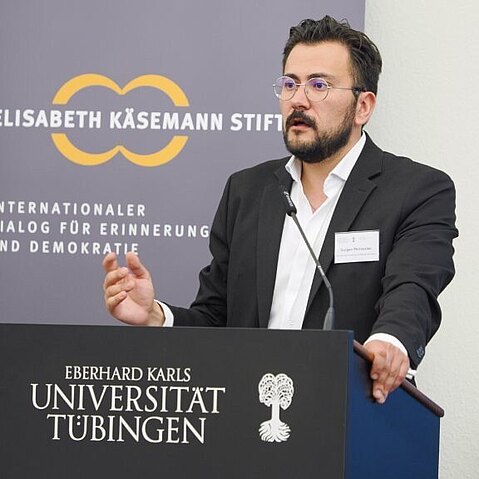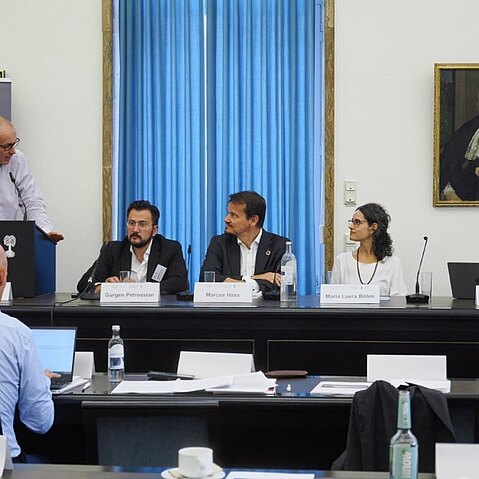From 2 to 3 July 2025, the Senior Officer for International Criminal Law, Dr. Gurgen Petrossian participated in the 7th Symposium of the Elisabeth Käsemann Foundation, held at the Faculty of Law, Eberhard Karls Universität Tübingen. The event, titled “Risky Investments? Entrepreneurial Activity in the Spatial Context of Human Rights Violations,” brought together experts from law, history, and business to examine the challenges of corporate complicity in human rights violations across time and geographies.
Dr Petrossian contributed to Panel III: The Role of the Legislature, Judiciary and Politics, presenting a talk titled “Poisoned Fruits: The Connection Between International Criminal Law and Business and Human Rights.” In his presentation, he emphasized that international criminal law serves as a last resort mechanism in cases where corporations engage in gross human rights abuses with clear intent and knowledge, such as aiding and abetting war crimes, crimes against humanity, or genocide. He argued that while soft law and due diligence frameworks are critical, they must be complemented by the possibility of criminal accountability to deter the most egregious corporate conduct.
The presentation was delivered alongside contributions from:
- Marcus Haas, Head of Unit for Business and Human Rights, German Federal Foreign Office, on developments in implementing the UN Guiding Principles in Germany;
- Maria Laura Böhm, Casa de Estudios, Buenos Aires, on prosecutorial challenges related to transnational mining companies in Latin America;
- Charlotte Schmitt-Leonardy, Universität Bielefeld, who analyzed the “Lafarge” case as a model for corporate accountability in armed conflict.
The symposium examined a wide range of case studies from historical and contemporary contexts, including the role of Volkswagen and Ford during military dictatorships, the Mercedes-Benz and Drummond cases in Latin America, and reflections on corporate governance, complaints mechanisms, and ethical responsibilities.
In his intervention, the Dr Petrossian highlighted the importance of integrating international criminal law into the broader business and human rights discourse, especially where voluntary compliance and civil remedies have proven insufficient to address or prevent severe abuses. (gp)



